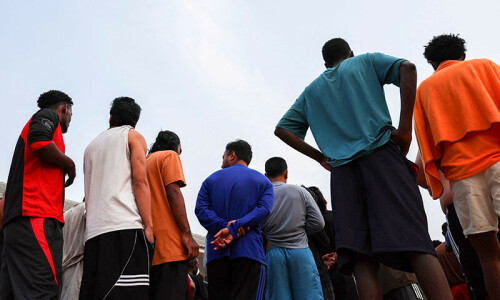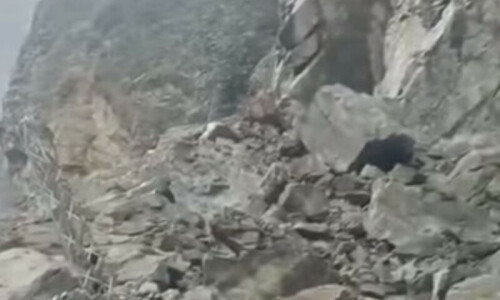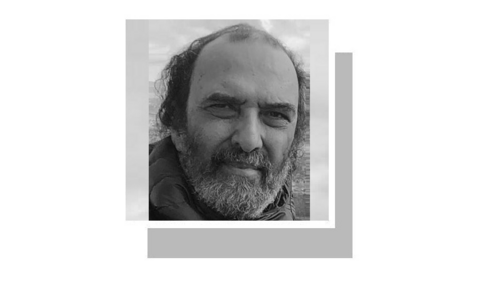
ANKARA: A remote-controlled bomb mounted on a motorcycle exploded in Turkey's largest city Thursday, wounding 15 police officers and one civilian, the prime minister said.
The blast occurred in an area of Istanbul close to the office of Prime Minister Recep Tayyip Erdogan's Justice and Development Party, where one policeman had been killed in a bomb attack last year. Thursday's attack wrecked a police bus and nearby vehicles.
''We will never bow to such attacks,'' Erdogan told a televised news conference. ''We will continue our struggle against terrorism and the culprits will be captured as soon as possible.''
Gov. Huseyin Avni Mutlu of Istanbul said none of the injured are in serious condition. He said the bomb was made of plastic explosives and mounted on a motorcycle.
There was no claim of responsibility, but Kurdish rebels and Islamic militants are active in Istanbul. The intended target of the attack appeared to be a police vehicle carrying 21 officers that was just passing the site where the blast occurred, said Police Chief Huseyin Capkin.
The bus came to a halt some 50 yards (meters) away, said one witness said. Forensic teams quickly covered it in blue nylon sheets as experts searched a cordoned-off area for fragments of the bomb.
NTV television, without citing sources, said the bomb was similar to another device that had exploded on a bicycle near a bus stop in Istanbul last year, wounding eight people, including a police officer. The government at the time said the attack resembled a Kurdish rebel operation.
In 2007, bombs mounted on bicycles exploded in the mostly Kurdish city of Diyarbakir in southeastern Turkey and in the western coastal city of Izmir. Authorities blamed Kurdish rebels for those attacks, which killed one person and wounded about 20.
Thursday's blast occurred amid escalating calls by Turkish Kurds for autonomy and other rights and a police crackdown on suspected affiliates of the Kurdish rebel group PKK.
The rebel group also had said that Turkey would face more violence, if it did not halt its military drive against the autonomy-seeking rebels.
The guerrillas took up arms in 1984, and tens of thousands of people have died in the conflict. Much of the violence centers on the predominantly Kurdish southeast of the country, with rebels resupplying and sheltering in bases across the border in northern Iraq.













































